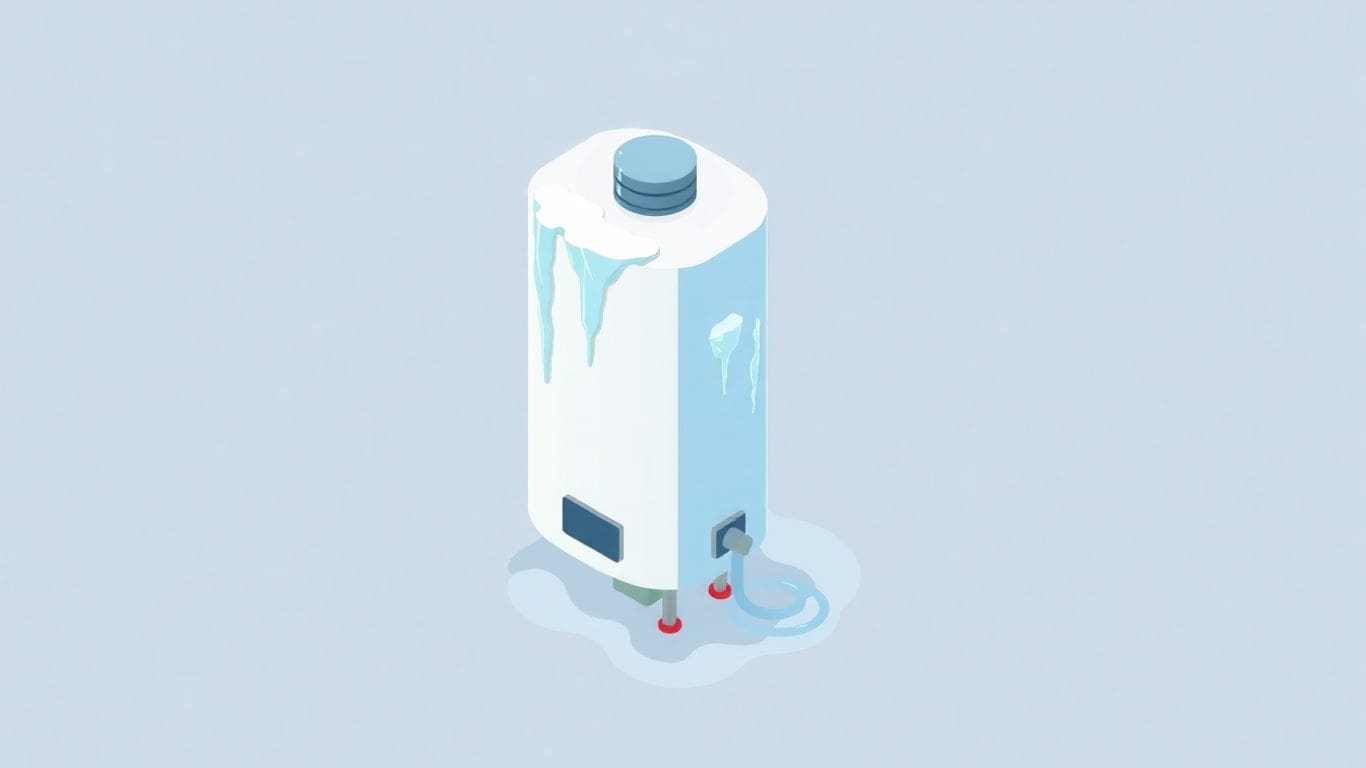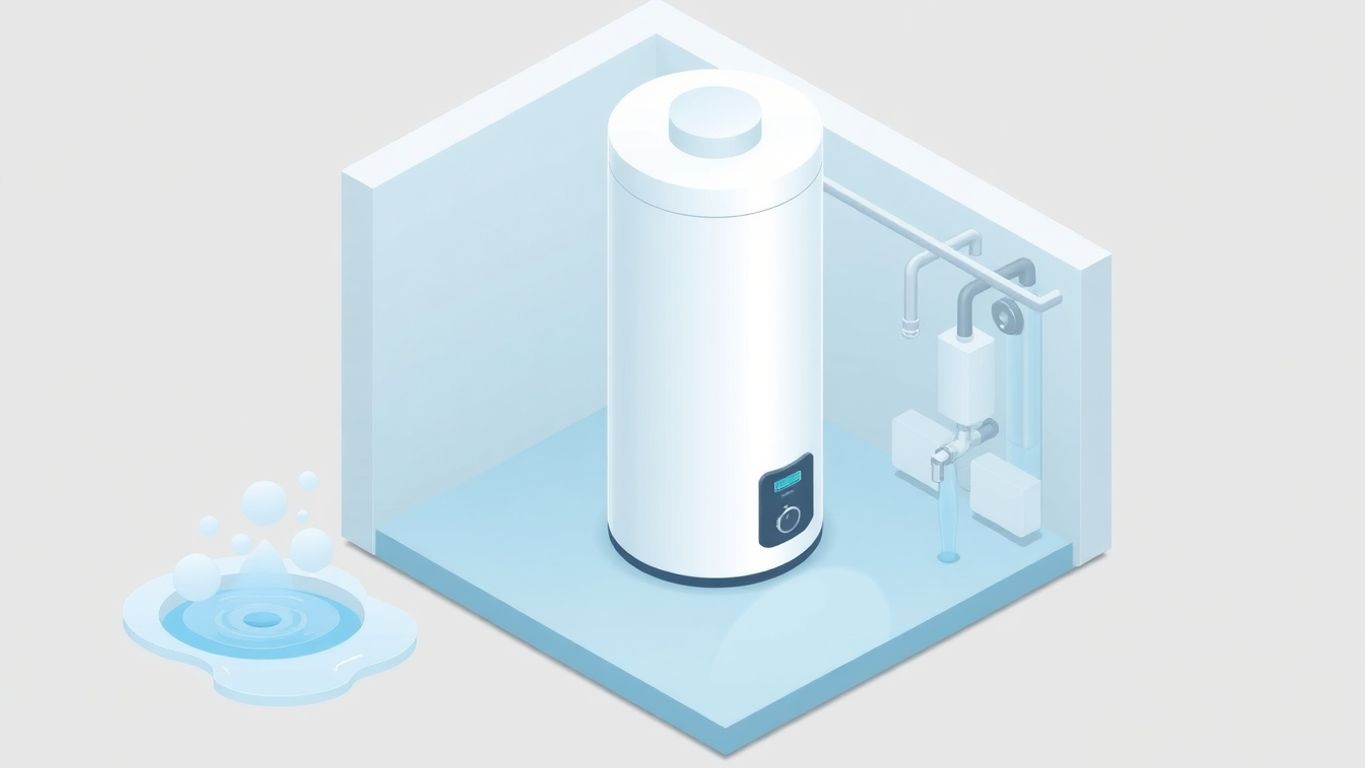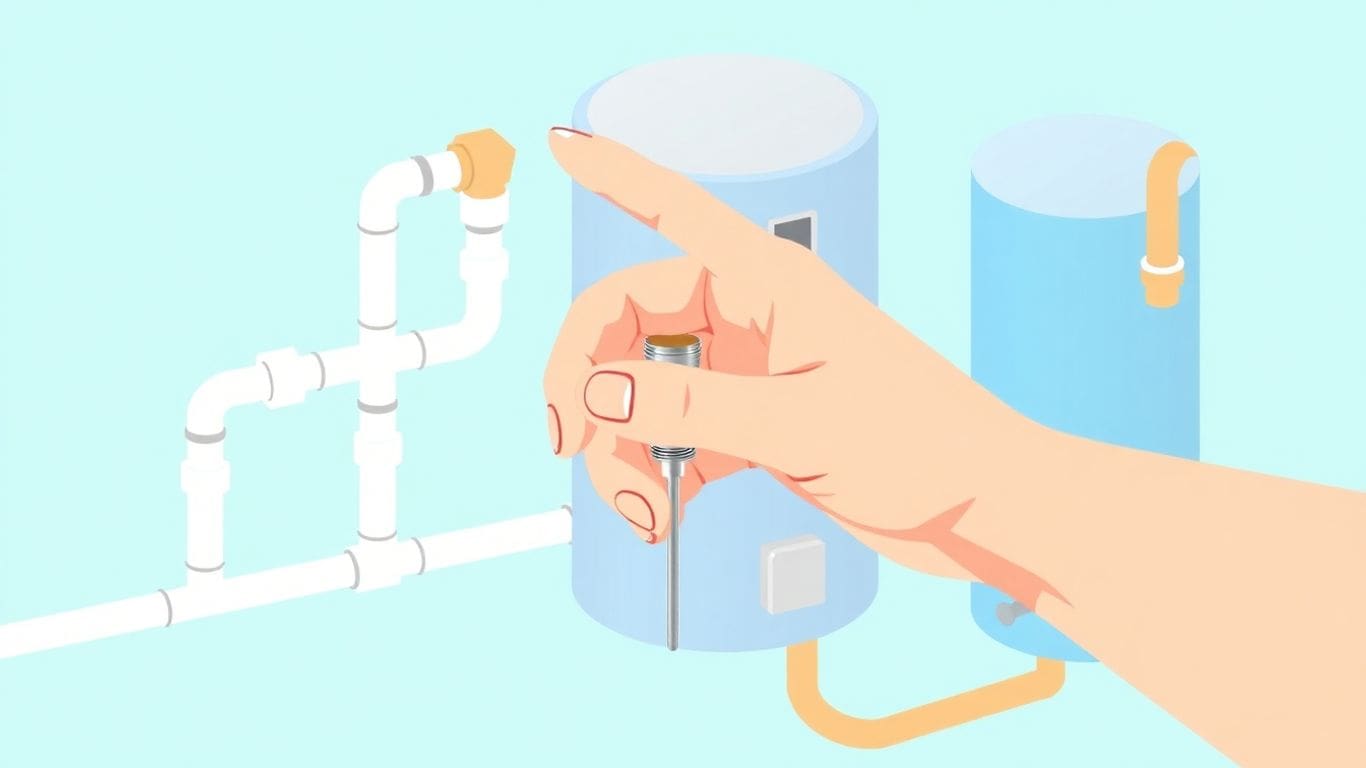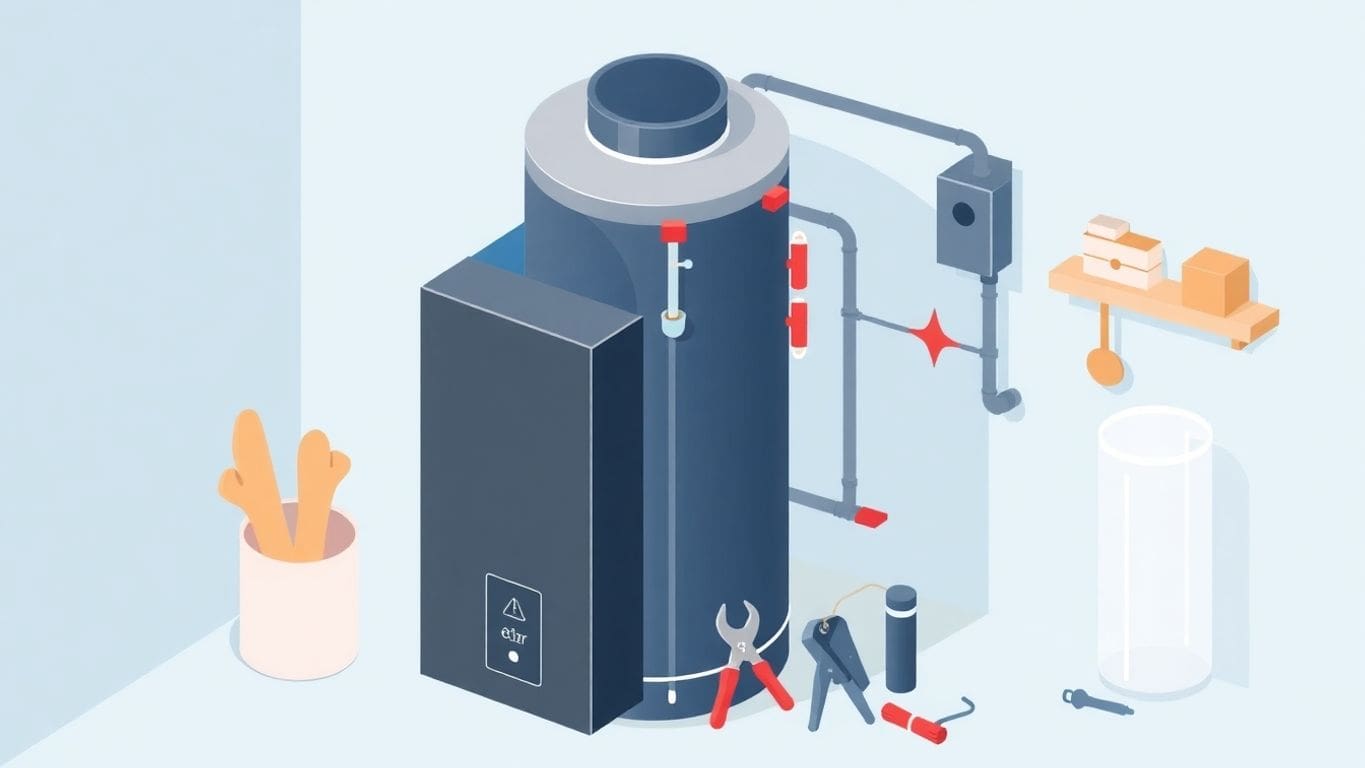
If your water heater is around 20 years old, it may be time to think about an upgrade. Water heaters are essential for our daily routines, providing hot water for showers, cleaning, and cooking. However, as they age, they can develop issues that affect their performance and efficiency. Here are some important signs to look for that indicate your water heater may need to be replaced.
Most water heaters last about 10 to 15 years. Some tankless models can last up to 20 years. If your water heater is nearing this age, it’s time to pay attention. Regular maintenance can help, but age is a big factor in performance.
Here’s a quick comparison:
| Type | Lifespan | Efficiency |
|---|---|---|
| Tank | 10-15 years | Moderate |
| Tankless | Up to 20 years | High |
Tankless models are often more efficient. They heat water on demand, which can save you money in the long run.
If your water heater is over 10 years old, start thinking about a replacement. Here are some signs:
Remember, it’s better to replace your water heater before it fails. Waiting too long can lead to leaks and costly damage.
When your water heater starts making strange noises, it’s trying to tell you something. You might hear:
These noises usually come from:
If you hear unusual sounds, it’s a good idea to get help. Ignoring these noises can lead to bigger problems. Here’s when to call a pro:
Remember, your water heater is an important part of your home. Keeping it in good shape helps ensure you have hot water when you need it.
If you notice rusty or discolored water coming from your taps, it could mean trouble. This is often a sign of internal corrosion in your water heater. Corrosion happens when the metal inside the tank starts to break down. This can lead to leaks and other serious problems.
Rusty water is not just unappealing; it can also affect your health. Drinking or using rusty water can lead to health issues. It’s important to address this problem quickly.
Remember, catching these signs early can save you from bigger problems later. Don’t ignore rusty water!
Inconsistent water temperature can be frustrating. Here are some common reasons:
Sediment is a layer of minerals that can build up at the bottom of your water heater. This buildup can:
To keep your water temperature steady, consider these steps:
Keeping your water heater in good shape can help ensure you have hot water when you need it. Regular maintenance is key!
Leaks can be a big problem for your water heater. Here are some signs to look for:
If you notice leaks, it’s important to act fast. A leaking water heater can cause:
If you see any signs of a leak, follow these steps:
Remember, even a small leak can lead to big problems. If you see water around your heater, don’t wait to get it checked out!
If you notice your energy bills getting higher, it might be time to check your water heater. An old or inefficient water heater can waste a lot of energy. Here are some reasons why this happens:
To see how much you could save, consider this simple table:
| Water Heater Age | Estimated Monthly Energy Cost | Potential Savings with New Model |
|---|---|---|
| 10 years | $100 | $30 |
| 15 years | $120 | $40 |
| 20 years | $150 | $50 |
Upgrading your water heater can lead to lower bills and a more comfortable home. Don’t wait until your bills skyrocket!
If your water heater is getting older, you might notice it needs repairs more often. Here are some signs:
Sometimes, fixing your water heater can cost a lot. Here’s a simple way to think about it:
| Repair Cost | Replacement Cost |
|---|---|
| $100 – $300 | $800 – $1,500 |
If you find yourself spending more on repairs than a new unit, it might be time to upgrade.
When it’s time to replace your water heater, consider these tips:
Remember, upgrading your water heater can save you money in the long run. It can also prevent unexpected breakdowns and water damage.

If you notice that your hot water supply is not what it used to be, it could be due to several reasons:
A decrease in hot water can affect your daily life in many ways:
If you experience these issues, it might be time to consider an upgrade. Here are some signs:
Upgrading to a new water heater can improve your comfort and save you money in the long run.

An old water heater can be a fire hazard. If it starts making strange noises, it could mean something is wrong. These noises might be a sign of sediment buildup or a failing heating element. Both can lead to overheating and fires. Always pay attention to unusual sounds coming from your unit.
Regular inspections are key to keeping your water heater safe. Here are some things to check:
If your water heater is over 20 years old, consider upgrading. Newer models are safer and more efficient. They often come with better safety features, reducing the risk of accidents.
Upgrading your water heater not only improves safety but also saves you money on energy bills.
Modern water heaters are designed to use less energy. This means they can heat your water while saving you money on your energy bills. Upgrading to a new model can lead to significant savings. New heaters often have better insulation and advanced technology that helps them work more efficiently.
Today’s water heaters come with smart features. These can include digital thermostats and remote controls. You can adjust the temperature from your phone or set schedules for when you need hot water. This convenience makes managing your home’s hot water easier than ever.
Using a modern water heater can also be better for the environment. New models are designed to reduce energy consumption, which means they produce fewer greenhouse gases. By upgrading, you are making a choice that helps the planet.
Investing in a modern water heater not only improves your comfort but also supports a healthier environment.
Here’s a quick look at the benefits of modern water heaters:
In conclusion, upgrading your water heater can lead to a more efficient, convenient, and environmentally friendly home. If your water heater is over 20 years old, it might be time to consider these benefits!
When it’s time to replace your water heater, planning is key. You want to avoid surprises when it comes to costs and installation. Here are some important steps to consider:
Planning ahead can save you time and money. Don’t wait until your old water heater fails to start thinking about a replacement.
By following these steps, you can ensure a smooth transition to a new water heater. Remember, being proactive can help you avoid costly repairs and keep your home comfortable.
When it’s time to replace your water heater, consider eco-friendly options. These include tankless water heaters and solar-powered systems. These systems use less energy and help the environment. They can also lower your energy bills.
Switching to an eco-friendly water heater can save you money over time. Here are some benefits:
Many local governments offer incentives for upgrading to energy-efficient models. Check for:
Upgrading to an eco-friendly water heater is not just good for the planet; it’s also a smart financial choice. You’ll enjoy hot water while saving money and helping the environment.
Most water heaters last about 10 to 15 years. Check the label on your unit for the manufacturing date.
Noises like popping or banging can mean there’s sediment inside. It’s best to have a professional check it out.
Rusty water can mean there’s corrosion inside your water heater. If you see this, consider replacing it.
If your water temperature changes a lot, it might be due to sediment buildup or a failing heating element.
Look for water pooling around the base of the heater. Even a small leak can be a sign of bigger problems.
An old water heater can use more energy. If your bills are rising, it might be time to upgrade.
Frequent repairs, leaks, or not enough hot water are common signs that your heater may need to be replaced.
Yes! There are many energy-efficient models that can save you money and are better for the environment.



